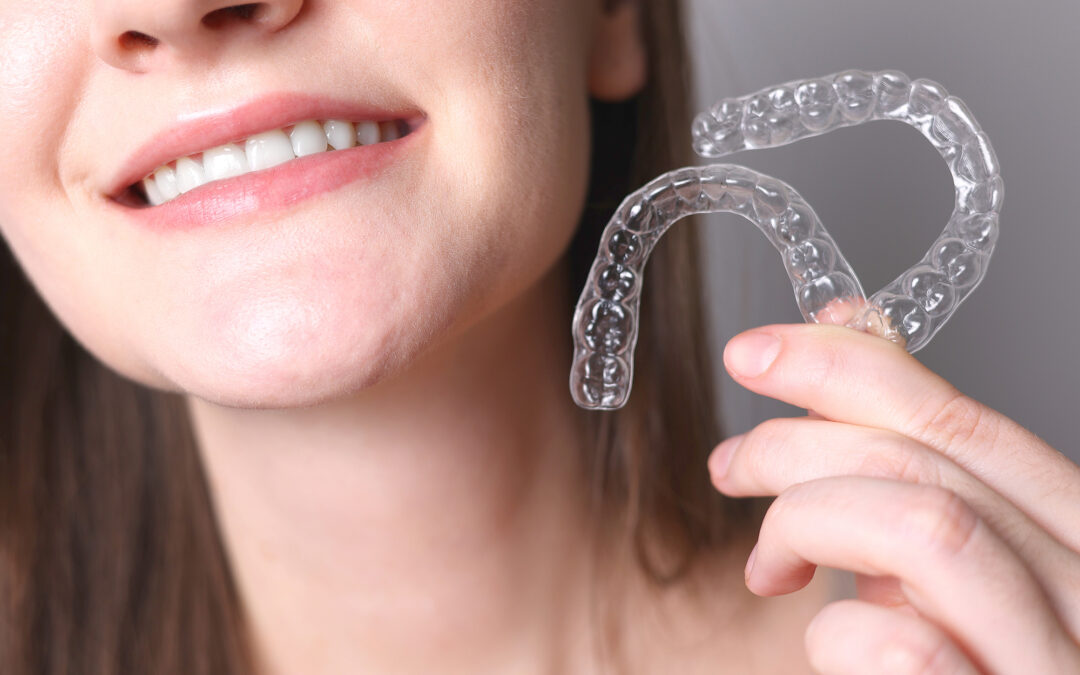Welcome to the stylish city of Melbourne, where beauty is not just admired but celebrated. In a place where fashion and trends rule the streets, it’s no surprise that cosmetic dentistry has become a reigning star in the pursuit of physical perfection. From dazzling smiles to flawless teeth, aesthetic dental practices have gained immense popularity among those seeking to enhance their appearance.
But as with any trend that captures our attention, it’s important to take a step back and consider the potential dangers and risks involved in these procedures. While aesthetics can undoubtedly boost confidence and self-esteem, there are ethical concerns that surround this growing phenomenon. So today, we delve into the world of aesthetic dental practices – exploring both its allure and the need for caution when pursuing beauty at any cost.
Join us as we navigate through this captivating topic, striking a balance between functionality and aesthetics in dentistry while also addressing issues such as informed consent. Let’s dive right into this thought-provoking discussion on whether looks can indeed go too far in the realm of cosmetic dentistry!
Aesthetic Dental Practices
In a stylish city like Melbourne, cosmetic dentistry reigns supreme. People are increasingly turning to aesthetic dental practices as a way to achieve their desired physical perfection. From teeth whitening treatments to veneers and implants, the options seem endless when it comes to enhancing one’s smile.
These procedures offer more than just cosmetic benefits. Aesthetic dental practices can also help improve oral health and functionality. For example, dental implants not only fill in gaps left by missing teeth but also restore proper chewing function and prevent bone loss in the jaw.
However, it’s important to recognize that there may be potential dangers and risks involved in these procedures. While advancements in technology have made aesthetic dentistry safer than ever before, complications can still arise if not performed by qualified professionals or if proper aftercare is neglected.
Moreover, ethical concerns surround the concept of altering one’s natural appearance solely for aesthetics purposes. It raises questions about societal pressures and whether individuals should feel compelled to undergo invasive procedures simply to meet certain beauty standards.
Finding a balance between functionality and aesthetics is crucial in the field of dentistry. It is essential that practitioners prioritize oral health while working towards achieving desired aesthetic outcomes for their patients.
Informed consent plays a significant role when considering any type of aesthetic dental procedure. Patients must fully understand the potential risks, benefits, alternatives, and expected outcomes before making an informed decision about going ahead with treatment.
So while it’s tempting to chase after physical perfection through aesthetic dental practices in this image-driven era where social media strategies often revolve around flawless appearances first – we must carefully weigh our options and consider both the short-term results and long-term implications on our overall well-being.
Potential Dangers and Risks Involved in Aesthetic Dental Practices
When it comes to achieving the perfect smile, aesthetic dental practices have gained immense popularity. In a stylish city like Melbourne, cosmetic dentistry reigns supreme, with people seeking ways to enhance their physical appearance. However, it is important to be aware of the potential dangers and risks that may come along with these procedures.
One of the primary concerns is the misuse or overuse of certain materials during aesthetic dental treatments. While these materials may help achieve immediate results, they can also lead to long-term complications such as allergic reactions or damage to tooth enamel.
Another risk associated with cosmetic dentistry is improper sterilization techniques. Infection control should always be a top priority in any dental practice, but especially in aesthetic procedures where invasive treatments are involved. Failure to maintain strict hygiene standards can result in serious infections or even transmission of diseases.
Additionally, there is the risk of irreversible damage caused by aggressive techniques used in pursuit of perfection. Overzealous reshaping or excessive teeth whitening can weaken tooth structure and compromise overall oral health.
Moreover, ethical concerns arise when practitioners prioritize aesthetics over functionality. It is crucial for dentists to find a balance between enhancing appearance and preserving natural teeth functionally.
Informed consent plays a vital role in protecting patients from unexpected outcomes or dissatisfaction after undergoing aesthetic dental procedures. Patients must understand all risks involved before making an informed decision about treatment options.
While seeking physical perfection through cosmetic dentistry may seem appealing on social media platforms where appearances matter most; it’s essential not to overlook the potential dangers and risks involved.
Ethical Concerns Surrounding Aesthetic Dentistry
When it comes to aesthetic dentistry, there are certain ethical concerns that need to be addressed. One of the main concerns is the pressure society puts on individuals to achieve physical perfection. In a stylish city like Melbourne, cosmetic dentistry reigns supreme and the social media strategy for many people is achieve physical perfection first.
However, this obsession with looks can have negative consequences. Some people may feel compelled to undergo unnecessary dental procedures in order to meet societal standards of beauty. This raises questions about whether these procedures are truly wanted or if they are simply driven by external pressures.
Another ethical concern surrounding aesthetic dentistry is the issue of informed consent. Patients must fully understand the risks and benefits of any procedure before giving their consent. They should also be made aware of alternative treatments or less invasive options that might achieve similar results.
Additionally, there is a responsibility on the part of dental professionals to ensure that they do not exploit vulnerable individuals who may already have insecurities about their appearance. The decision-making process should always prioritize patient well-being over financial gain.
While aesthetic dentistry has its place in enhancing smiles and boosting self-confidence, it is important for both patients and practitioners alike to consider the ethical implications involved. Open communication, informed consent, and a focus on overall well-being should guide decisions related to these procedures in order to ensure responsible practices within this field.
Balancing Functionality and Aesthetics in Dentistry
When it comes to dentistry, there has always been a delicate balance between functionality and aesthetics. While the primary goal is to ensure oral health and functionality, many people also desire a beautiful smile that boosts their self-confidence. In a stylish city like Melbourne, cosmetic dentistry reigns supreme.
However, it’s important to remember that prioritizing aesthetics should never compromise the overall function of our teeth and mouth. After all, what good is having a picture-perfect smile if we can’t properly chew or speak? That’s why dental professionals must strike the right balance between beauty and practicality.
In modern dentistry, advancements in technology have made it possible to achieve both functionality and aesthetics simultaneously. From tooth-colored fillings to ceramic crowns that mimic natural teeth, these innovations have revolutionized aesthetic dental practices. Dentists now have an array of tools at their disposal to create smiles that are not only visually appealing but also functional.
But striking this delicate balance isn’t just about using advanced techniques; it requires careful assessment of each individual case. Every patient is unique with different needs and expectations when it comes to their dental appearance. Dental professionals need to take into consideration factors such as bite alignment, jaw position, and overall oral health before embarking on any cosmetic procedures.
Moreover, ethical concerns come into play when discussing aesthetic dentistry. It is crucial for practitioners to prioritize informed consent from patients by thoroughly explaining potential risks involved in certain procedures as well as managing realistic expectations regarding outcomes.
Finding the equilibrium between functionality and aesthetics in dentistry requires skillful technique along with ethical considerations. By ensuring that patients’ oral health remains at the forefront while enhancing their smiles aesthetically within safe boundaries truly allows for optimal satisfaction – where both form & function unite seamlessly!
The Role of Informed Consent in Aesthetic Dental Procedures
In any aesthetic dental procedure, the role of informed consent cannot be stressed enough. Patients must have a thorough understanding of the risks and benefits involved before undergoing any treatment. They should be provided with all the necessary information to make an informed decision about their oral health.
A responsible and ethical dentist will take the time to explain the potential outcomes and limitations of different procedures to their patients. They should discuss alternative options, if available, and address any concerns or questions that may arise.
Informed consent goes beyond just obtaining a signature on a form. It is about building trust and ensuring that patients feel empowered in making choices regarding their own appearance. Dentists should encourage open communication throughout the treatment process and provide ongoing support post-treatment.
Striking a balance between aesthetics and functionality is key in aesthetic dentistry. While it is understandable that individuals strive for physical perfection in today’s society, it is important not to overlook the importance of maintaining healthy teeth and gums.
In a stylish city like Melbourne where cosmetic dentistry reigns supreme, it can be tempting to prioritize looks over oral health. However, by working with skilled professionals who prioritize both aesthetics and functionality, patients can achieve beautiful smiles while ensuring long-term oral well-being.
So if you’re considering an aesthetic dental procedure, take your time to research reputable practices that uphold ethical standards. Seek out dentists who value comprehensive patient education and emphasize collaboration when developing treatment plans.
Remember: achieving physical perfection first shouldn’t come at the expense of your overall oral health!













